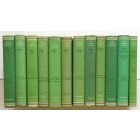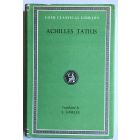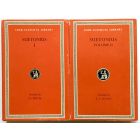The first of two volumes is giving a selection of Greek papyri relating to private and public business. They cover a period from before 300 BCE to the eighth century CE. Most were found in rubbish heaps or remains of ancient houses or in tombs in Egypt. From such papyri we get much information about administration and social and economic conditions in Egypt, and about native Egyptian, Greek, Roman and Byzantine law, as well as glimpses of ordinary life.
It contains:
Agreements (71 examples); these concern marriage, divorce, adoption, apprenticeship, sales, leases, employment of labourers.
Receipts (10).
Wills (6).
Deed of disownment.
Personal letters from men and women, young and old (82).
Memoranda (2).
Invitations (5).
Orders for payment (2).
Agenda (2).
Accounts and inventories (12).
Questions of oracles (3).
Christian prayers (2).
A Gnostic charm.
Horoscopes (2).
The second volume presents papyri relating to public business of various kinds in Egypt from the middle of the third century BCE to 710 CE, thus including affairs in that country first when it was ruled by the Greek Ptolemaic kings, secondly when it was a Roman province. The earliest examples date from the reign of King Ptolemy II Philadelphus and the latest from the government by the Arabs after their conquest of Egypt in 639–641 CE.
The papyri chosen were all sent by persons in office (from king, Roman emperor, or governor downwards) or addressed to them or sent for their information:
Codes and Regulations (6 examples).
Edicts and Orders (26).
Public Announcements (6).
Reports of Meetings (3).
Official Acts and Inquiries (5).
Judicial Business (18).
Petitions and Applications (44).
Declarations to Officials (30).
Appointments and Nominations (7).
Tenders and Contracts (19).
Receipts (26).
Orders for Payment (6).
Accounts and Registers or Lists (12).
Letters (16).
Notes on the systems of dating and of money in Egypt as well as a glossary of technical terms are provided.
The three-volume Loeb Classical Library edition of Select Papyri also includes a volume of poetry which includes:
From the 5th–4th centuries BCE, fragments of two tragedies (one a satyr play by Aeschylus); of five plays by Sophocles; of ten by Euripides; of one by Ion; and of some plays not assignable.
From Old Comedy, 5th century, we have fragments of one play each of Epicharmus, Cratinus, Pherecrates, Eupolis, and Plato; some fragments of Aristophanes; and unassignable fragments.
From Middle Comedy and New Comedy, 4th and 3rd centuries, are 26 items including at least three by Menander and one each by Philemon, Timocles, and Straton.
From mimes there are a fragment of Sophron and six unassignable, including 112 lines of clownish doings by the Indian Ocean.
The lyric poetry, 7th century BCE–4th CE, 21 mostly anonymous items, includes some of Sappho, Corinna, Pindar, Philicus, fragments of dithyrambic poetry, hymns, songs and so on.
There are seventeen examples of elegiac and iambic poetry, 7th century BCE–3rd CE, including some Mimnermus, Amyntas, Leonidas, Antipater of Sidon, and Posidippus.
The 30 items of hexameter poetry, 5th century BCE–6th CE, are mostly unassignable but include Panyasis, Erinna (a lovely fragment of her “Distaff”), Euphorion, Pancrates, and Dionysius (the “Bassarica”).








